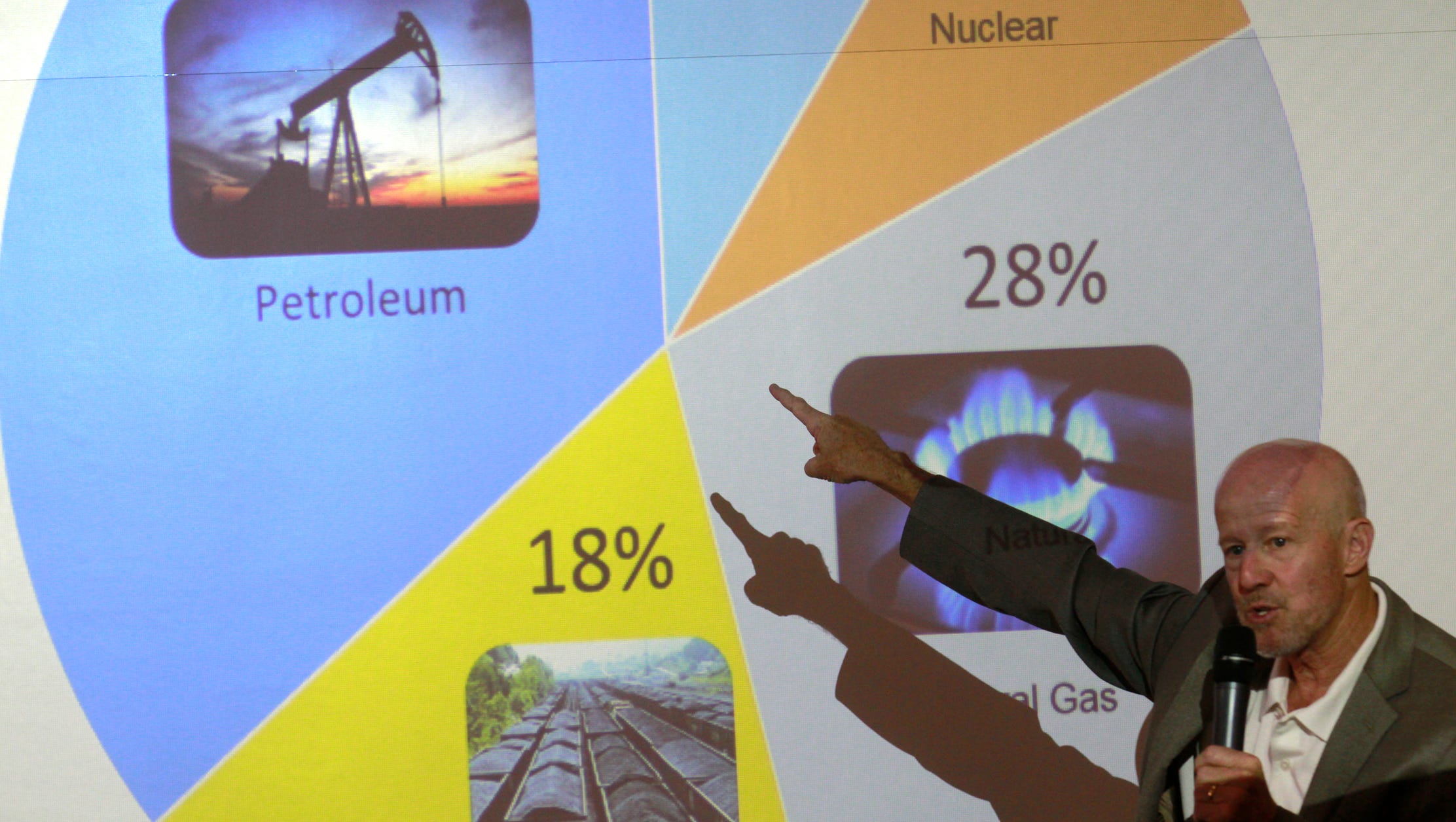Energy group hopes to reduce foreign oil imports

FARMINGTON – A group of oil and gas executives and energy policy experts from the Texas Panhandle and New Mexico's piece of the Permian Basin are pushing a plan to restrict seafaring imports of foreign oil from coming into the U.S. in order to stabilize the oil and gas industry and bring back lost oilfield jobs.
The group's plan, which would exempt crude oil imported from Mexico and Canada, is an effort to push back against the price wars the group said are being waged by OPEC, or the Organization of the Petroleum Exporting Countries, led by Saudi Arabia.
Members met at the School of Energy at San Juan College Tuesday to promote the "Panhandle Import Reduction Initiative," which they say could be implemented in multiple phases within 90 days of the next administration, with the ultimate goal of reducing heavy crude oil imports to about 10 percent of demand.
Launched in November, the initiative aims to cut foreign oil imports enough to activate more domestic drilling rigs and boost domestic production to meet current demand levels within four years.
Former state legislator and Four Corners Economic Development Chief Operating Officer Tom Taylor said the drop in natural gas prices eight years ago and the fall of crude oil in 2014, has delivered prolonged pain to the regional economy.

"We find ourselves ... in a situation now where we're down about 6,000 jobs, most of those in the oil and gas industry," Taylor said of the San Juan Basin. "We have about 11,000 people who have left (San Juan County) ... So while we're down 6,000 jobs and down 11,000 people, we've built seven fast-food restaurants, three more under construction, and two big box stores. It's a different world out there.
"But the fact of the matter is that the economic base of the community is in trouble. And not only is the community in trouble, but the state of New Mexico is in trouble, and not only is New Mexico in trouble but our nation and its security. It's all tied together. It's a very difficult situation we find ourselves in when we have one country that can control oil prices. It goes beyond free trade. It's a problem we need a solution to. We are at the dependence of foreign oil."
Taylor said about a third of New Mexico's general fund comes from the oil and gas industry in the form of taxes and fees.
The pro-quota group argued for limiting American dependence on foreign oil using a method adopted by former President Dwight Eisenhower who pushed through a quota system to reduce sea-bound foreign oil coming to U.S. shores in the early 1950s..
Dan Fine — associate director of New Mexico Tech's Center for Energy Policy and one of Gov. Susana Martinez's senior energy policy advisers — said the key would be to take cues from Eisenhower's approach.

Fine said that when Eisenhower imposed quotas, the U.S. reduced the number of barrels of imported foreign oil by 70 percent, bolstering national security.
"It lasted 14 years. It was over in 1973," Fine said. "By 1960, we were importing nine million barrels of oil a day and all of that was moving out of the Middle East."
Fine said Eisenhower's effort stabilized the economy and delivered jobs while the quotas were in place.
"That is a picture of what happened with a quota system," Fine said. "That was then. With modifications, this can work."
Fine said potential resistance to foreign-oil quotas likely would come from consumers facing higher prices at the gas pump and coastal refineries that process the imported oil.
Merrion Oil & Gas President T. Greg Merrion said that of the 20 million barrels of oil the U.S. consumes each day, half that number comes from foreign sources. Merrion said that level of imported foreign oil, much of it shipped through the volatile waters of the Persian Gulf and protected by the U.S. Navy, is expensive and dangerous.
And Saudi Arabia is retaliating, he said, trying to choke off the shale oil play revolution in the U.S.
The Saudis, he said, have created an oil glut on the world market, sending prices for a barrel of oil that was above $100 in 2014, down below $30. It recently has climbed back up to around $50. Around 90 drilling rigs operated in New Mexico two years ago, he said. Now there are 20 statewide and only two currently running in the San Juan Basin.
"We do need to do something," Merrion said.
Initiative member Tom Cambridge of Amarillo, Tex.-based Cambridge Production Inc., said the group sees itself as part of a grassroots campaign that aims to resuscitate an industry that has seen U.S. production plummet in the last two years by about 700,000 barrels a day.
"It's a war," Cambridge said.
Judy Stark of Amarillo, Tex.-based Panhandle Producers & Royalty Owners Association, sounded alarms over the threat of Saudi investors buying up U.S. refineries, threatening national security as imported oil climbs toward 50 percent of demand, she said. Only support from the presumptive Republican Party nominee would likely deliver the quotas the initiative members seek, she said, without mentioning Donald Trump's name.
"(The Saudis) are coming to America, and the only way to stop it will be for us to take over our own market, raise our military back up, strengthen our oil production and our reserves and take control of our own market," she said. "They will move in next door to us and they'll be our neighbors and all of a sudden you'll walk out to get your newspaper and they will walk across the lawn and cut your throat. It's happening. Right now."
James Fenton is the business editor of The Daily Times. He can be reached at 505-564-4621.